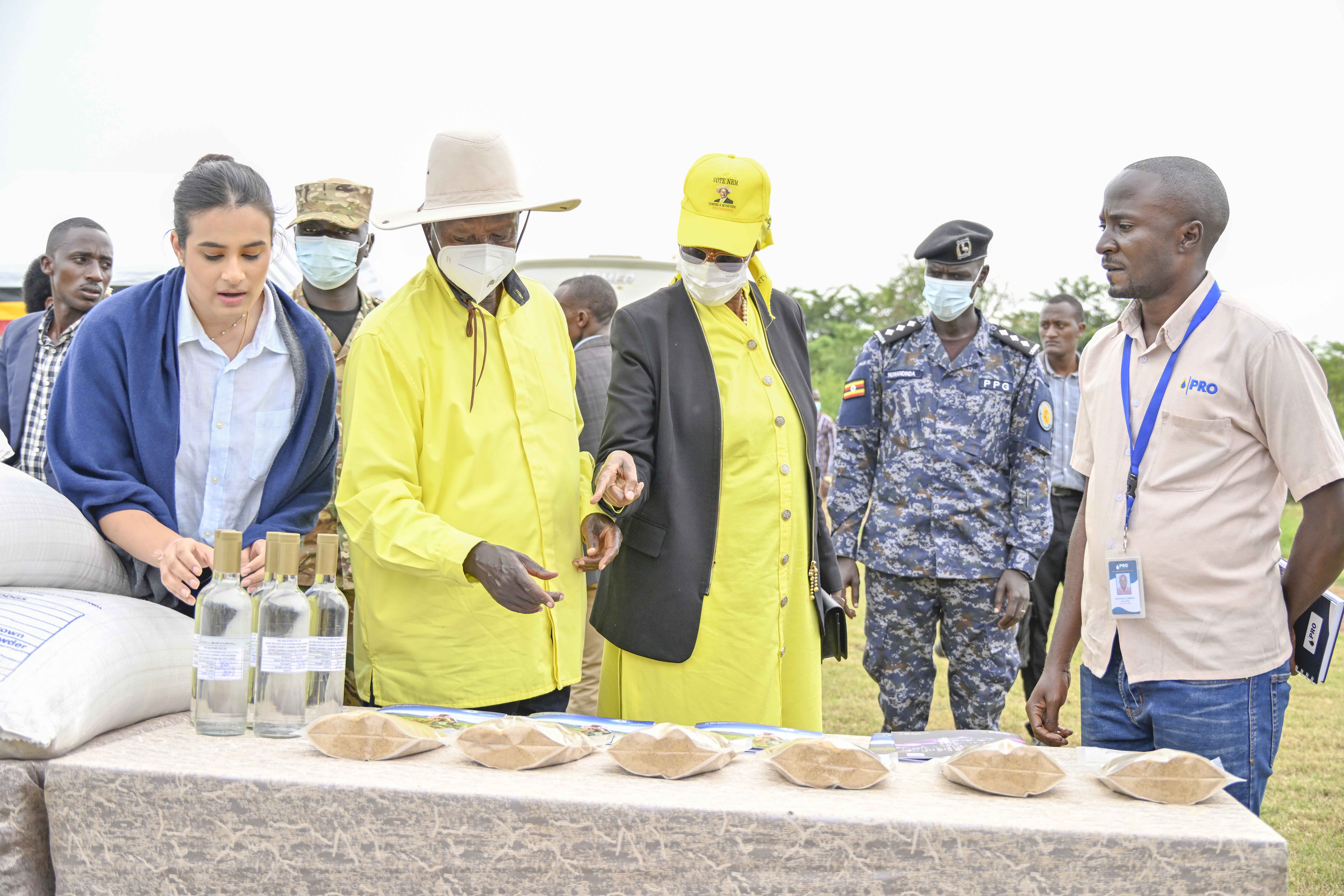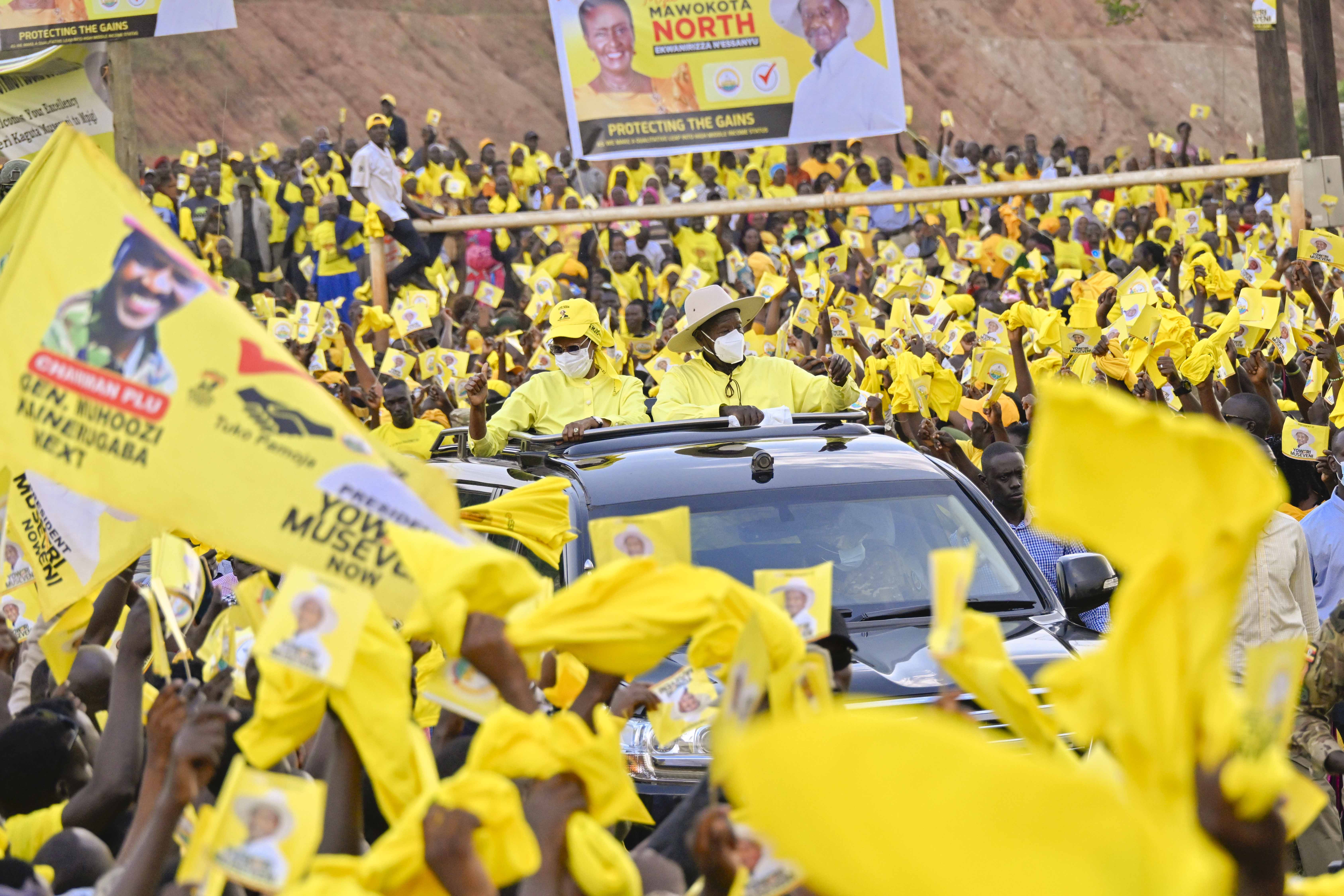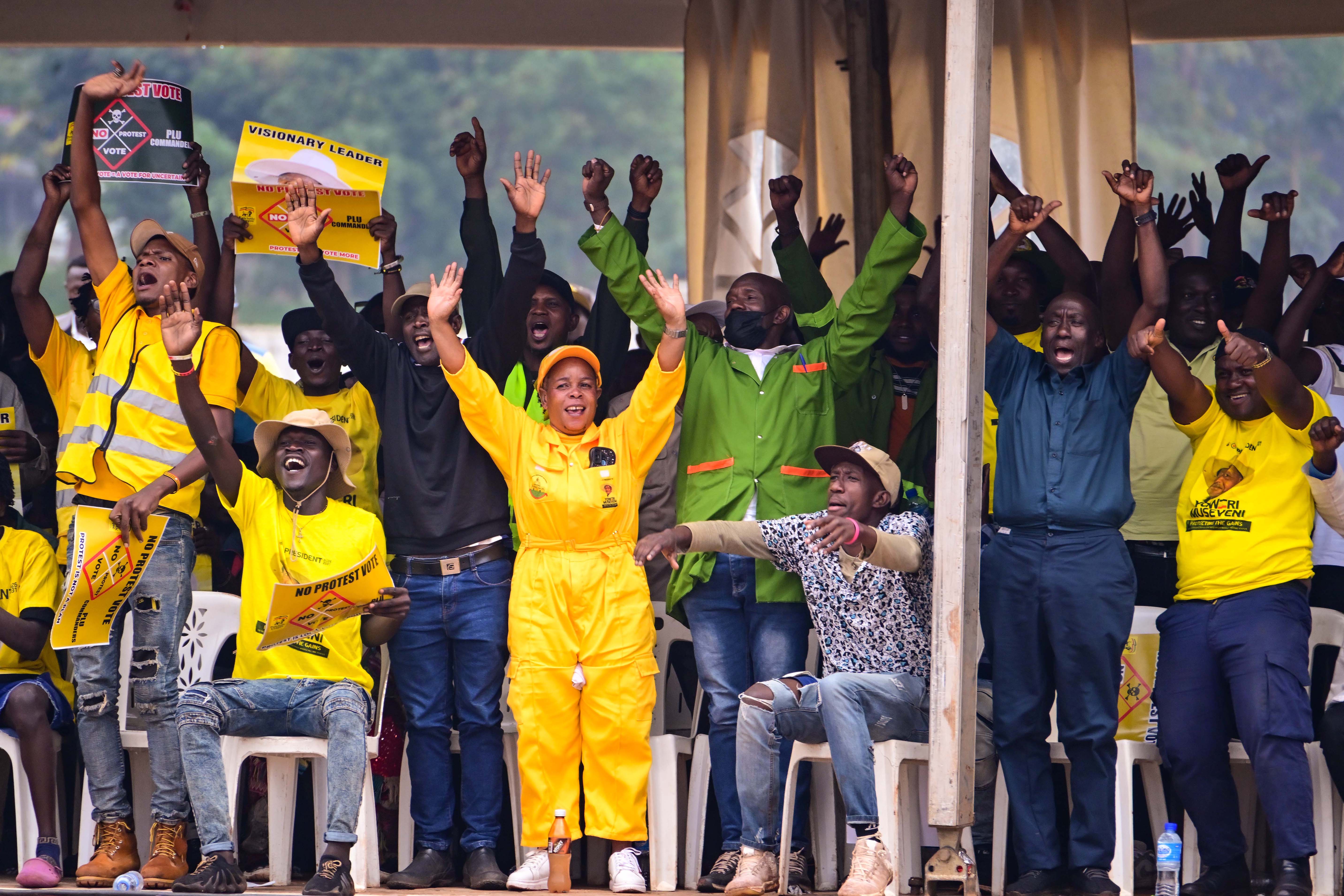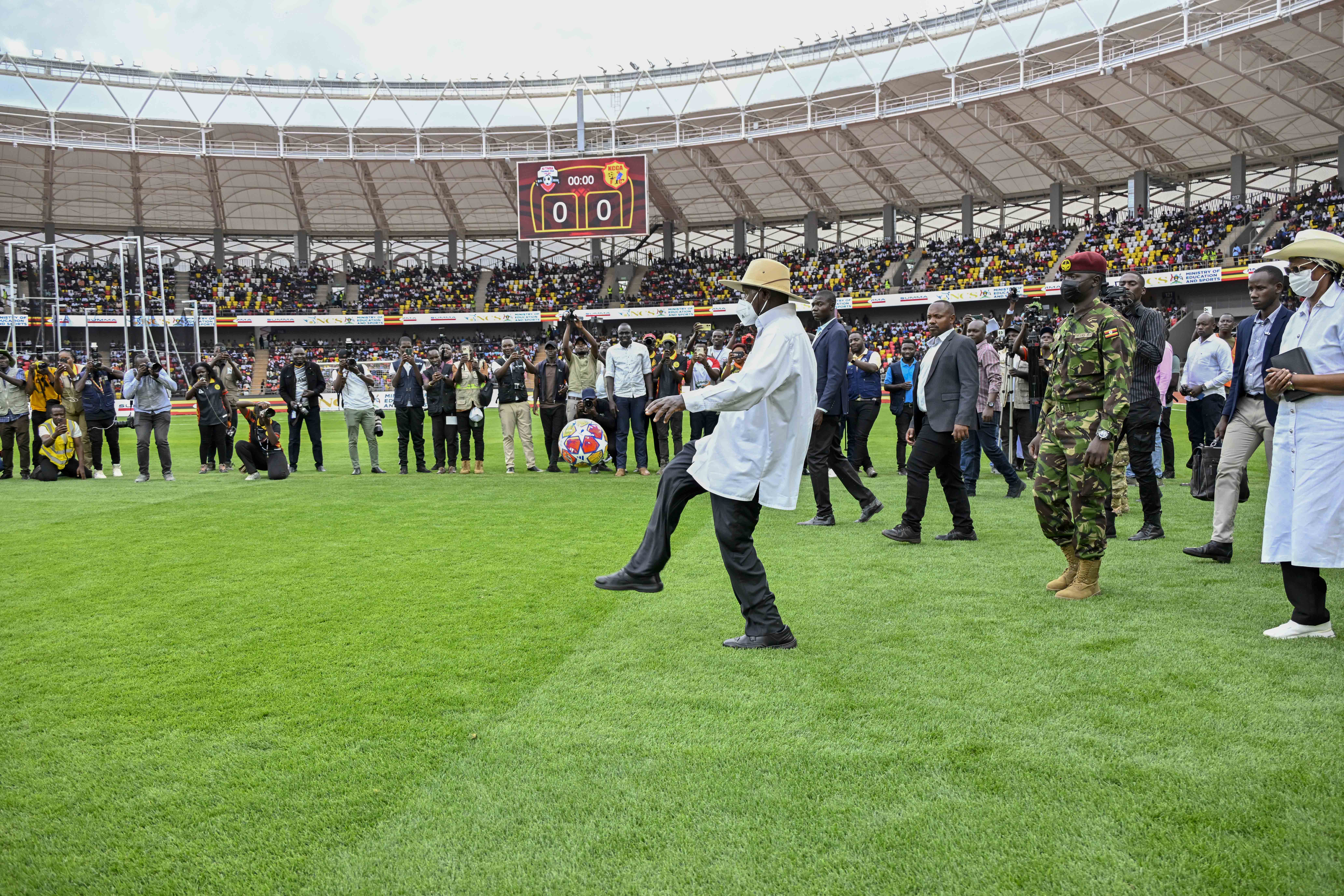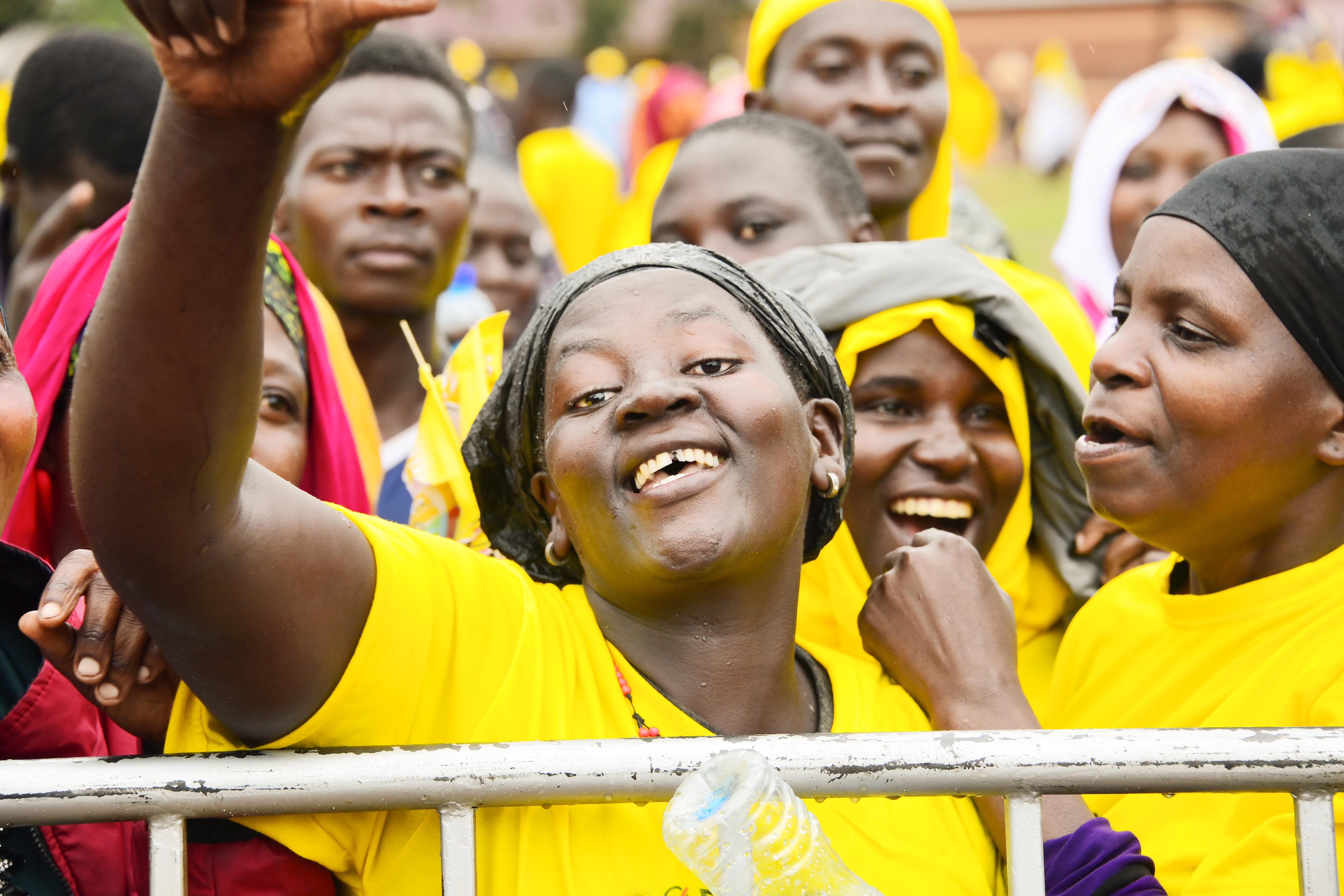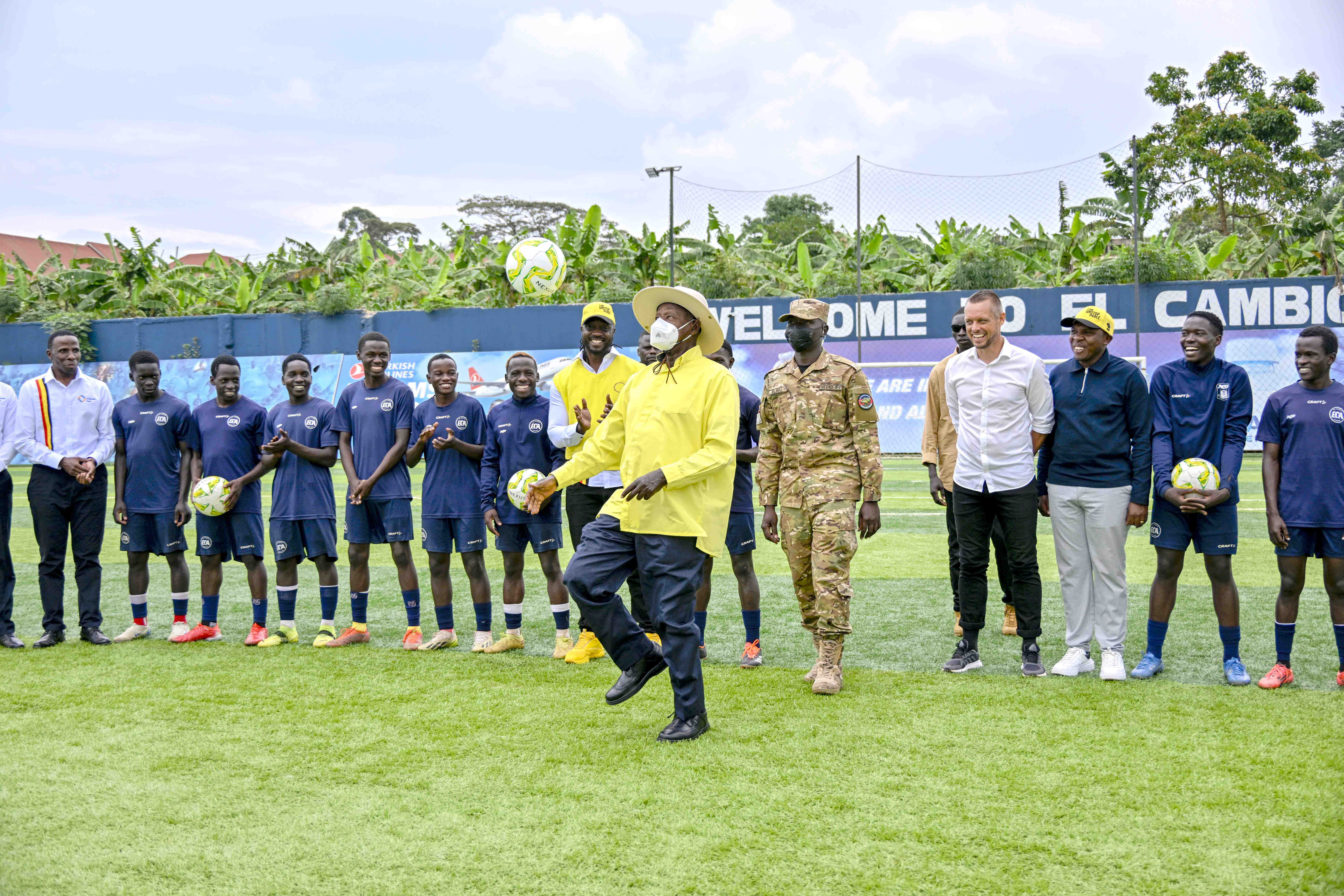29 December 2025
PRESIDENT MUSEVENI KICKS-OFF CAMPAIGN TRAIL IN GREATER MPIGI, CAUTIONS VOTERS AGAINST POLITICIANS FRUSTRATING DEVELOPMENT
President Yoweri Kaguta Museveni, also the National Resistance Movement (NRM) Presidential flagbearer for 2026 general elections, has cautioned the electorate against voting inexperienced politicians especially from the opposition side whose focus is frustrating government's development initiatives.
“Don't take decisions by gambling which you will later regret. Vote the NRM to be sure because our track record on development is known and seen,” he said.
The President who was accompanied by the First Lady and Minister of Education and Sports, Maama Janet Museveni made the remarks today as he kicked-off his campaign trail in Greater Mpigi, beginning with Butambala District.
President Museveni noted that it's crucial for voters to elect ideologically oriented leaders aligned to the NRM party to support all development interventions.
He also emphasized that the NRM’s pledges were not mere promises, but extensions of the achievements already delivered.
“What we are talking about are not promises; we show that we have delivered over the years, and now we are adding on to our promises,” he said.
On peace, the President reflected on Uganda’s turbulent past and the unity achieved under NRM leadership.
“Uganda was ungovernable at some point. Today, we are all united regardless of tribes, religion, or gender. Everyone can see it—it’s not about saying, it’s about doing,” he added.
Highlighting Butambala’s progress, the President pointed to infrastructure, electricity, and water supply.
“We passed here in Butambala while working on the Kisozi- Mpigi- Kibibi- Gombe-Kyanje-Mpenja-Kanoni-Kabulasoke road,” he said.
“All sub-counties in Butambala now have electricity, and 82 percent of villages enjoy safe water.”
President Museveni also outlined projects that shall be worked on very soon; including the Mitala-Maria and Bulo-Kanoni roads, as well as water initiatives in Butambala District.
On personal initiatives, the President shared his own example of productive farming.
“I have a personal model farm, one acre for coffee, one for bananas, one for pasture, and one for cattle and fish. I earn Shs 100 million per year and after costs, I remain with Shs 70 million.”
He also underscored the NRM’s role in promoting coffee farming in Buganda, saying, “Masaka, Sembabule, and Rakai people are coffee growers because of the NRM. Those who claim they introduced coffee are not telling the truth.”
President Museveni further highlighted the importance of wealth creation as a complement to development.
He cited Rashidah Namubiru, a PDM beneficiary from Butambala, who transformed her life using PDM funds.
“I visited Rashidah myself. She started with goats and land, and today she has multiplied her livestock and income. She is a living example of how PDM changes lives,” he said.
Addressing misconceptions about employment, the President noted the limits of government jobs.
“Uganda has about 480,000 government jobs for a population of 50 million. You cannot talk about jobs without talking about wealth. Jobs come from commercial agriculture, factories, services, and ICT,” he said.
He cited Mbale Industrial Park, which houses over 75 factories and has created thousands of jobs.
“While the government employs 480,000 people, new factories across the country have already created 1.3 million jobs—nearly three times more than the public sector.”
President Museveni revealed that the government was going to set up a Presidential Zonal Industrial Skilling Hub in Greater Mpigi to train the youth in the area.
The President also heard the story of Sarah Nagayi, a young woman from Kayunga who lost her mother and dropped out of school. Through the Kayunga Presidential Skilling Hub, she trained in hairdressing at no cost, graduated, and secured employment before starting her own salon.
“Today, Nagayi is skilled, a wealth creator, and an employer. She has three employees, pays each Shs 150,000, earns Shs 1.5m per month, and owns land. This is the Uganda we are building, where government programs empower citizens to create wealth,” he said.
Furthermore, President Museveni urged Ugandans to embrace the opportunities provided by NRM programs, emphasizing that peace, development, and wealth creation remain the pillars of the party’s agenda.
The President also handed over the NRM flags to aspiring Members of Parliament, LC V chairperson, councillors, and other party candidates in Butambala District, formally endorsing their participation in the upcoming elections.
On her part, Maama Janet called on residents of Butambala to turn out in large numbers and support President Museveni and the NRM, saying the party remains the strongest guarantor of Uganda’s unity and peace.
“As you come here today, remember that this enthusiasm should translate into votes. We are looking at 70% and above,” she said.
She cautioned supporters against limiting mobilisation to rallies, urging them to ensure that no one is left behind on polling day.
“These numbers you see here should not be for this rally only. When January 15, 2026, comes, go out and vote. Do not leave anyone at home. Let everyone participate,” she said.
Maama Janet reminded the crowd of the historical mission of the NRM, saying the party fought to restore unity in a country once torn apart by division and conflict.
“The NRM government went to fight for unity. Our National Anthem reminds us that Uganda is united for freedom and that together we shall always stand as one nation,” she said.
“When you vote for the NRM, you are voting for unity and peace.”
She warned that instability remains a reality in many neighbouring countries, forcing thousands of refugees to seek safety in Uganda.
“Many countries around us do not have peace, which is why we host refugees. I am sure you do not want Uganda to be like that,” she said.
Maama Janet emphasised that Uganda’s strength lies in its unity beyond religion and tribe, urging citizens to safeguard that legacy for future generations.
“Today, Ugandans are united. We are not divided by tribe or religion. We want our children to find this unity intact because that is where development is built,” she said, urging the people of Butambala to overwhelmingly support President Museveni and the NRM.
The NRM First National Vice Chairperson, Alhajji Moses Kigongo also rallied residents to support the ruling party, describing it as a movement founded on truth, discipline and service to the people.
“We have come here at the right time to ask for your votes. We need disciplined people who are patriotic and love their country,” Alhajji Kigongo said.
He warned residents against engaging in activities that promote chaos, urging them to instead protect peace and national stability.
“Do not be part of groups that cause confusion. Love your country and protect its peace,” he said.
The Speaker of Parliament and Second National Vice Chairperson of the NRM (Female), Rt. Hon. Anita Annet Among, thanked the residents for turning up in large numbers and reiterated government commitment to service delivery in the area.
She also acknowledged calls from leaders and residents to upgrade Gombe Hospital into a regional referral hospital to serve the greater Mpigi sub-region and neighbouring districts.
Rt. Hon. Among praised President Museveni for consistently encouraging leaders to develop their home areas and lead by example.
“Even when you lose an election, you remain a leader to your people. Leadership is about service, setting an example and developing your community,” she said.
The Butambala NRM Chairperson, Mr. Herbert Mugarura hailed President Museveni for what he described as “tangible and life-changing government interventions” that are steadily transforming the district, particularly in women empowerment, wealth creation, education, health and water access.
Mr. Mugarura thanked the President for prioritising ordinary Ugandans through programmes such as the Parish Development Model (PDM) and Emyooga, which he said have restored hope among households previously trapped outside the money economy.
“Butambala is grateful for your leadership, Your Excellency. The empowerment of women and households through PDM and Emyooga has strengthened families and reduced vulnerability,” the chairperson said.
He noted that Butambala District, with a population of 146,516 people according to the 2024 census, is administratively composed of seven sub-counties and town councils, 25 parishes and 141 villages. The district currently has 66,932 registered voters, an increase of 11,119 voters, while polling stations have risen from 123 in 2021 to 169, a sign of growing civic participation.
On wealth creation, Mr. Mugarura revealed that all 25 parishes in the district have benefited from the Parish Development Model, receiving a cumulative Shs8.9 billion, of which Shs7.46 billion (86.2%) has already been disbursed to 7,461 beneficiary households.
He added that the district also has 18 Emyooga SACCOs with 8,116 members, which have so far received Shs780 million from the government.
In education, the Chairperson reported that Butambala has 68 government primary schools enrolling 24,284 pupils, and 12 government secondary schools with 9,607 students. Of these secondary schools, nine offer Universal Secondary Education and Universal Post-O Level Education, serving 6,110 learners.
While 22 of the 25 parishes have at least one government primary school, three are still lacking. Similarly, six of the seven sub-counties have a government secondary school. However, he said the ongoing construction of two seed secondary schools will ensure that every sub-county has a government secondary school once completed.
In the health sector, Mr. Mugarura said the district has one hospital and six Health Centre IIIs, ensuring that every sub-county has at least one public health facility.
He further highlighted significant progress in the water sector, noting that 123 out of 141 rural villages now have access to safe water, translating into 87.2 percent coverage.
He cited completed projects such as the Gombe–Kyabadaza Townships Piped Water Supply and Sanitation System, which serves over 55,000 people, alongside several water supply systems in Ngando, Kibibi, Bulo, Kirokola and Kabasanda.
Ongoing and planned projects include new boreholes, extension of piped water systems, rehabilitation of old water sources, and the Greater Gomba Piped Water Supply and Sanitation System, which will further improve access in underserved areas.
On water for production, the Chairperson said government-funded solar-powered irrigation schemes in Bulo, Ngando, Kalamba and Gombe sub-counties have expanded irrigation acreage, increased crop yields and boosted household incomes.
He noted that one scheme in Gombe is already producing six tonnes of coffee and beans annually, earning farmers about Shs9.6 million.
Mr. Mugarura concluded by thanking the President for connecting Butambala to the national electricity grid, saying the milestone has opened new opportunities for agro-processing, trade and industrial growth.
The rally was attended by NRM Central Executive Committee (CEC) members, Members of Parliament, religious and cultural leaders, as well as thousands of supporters.
